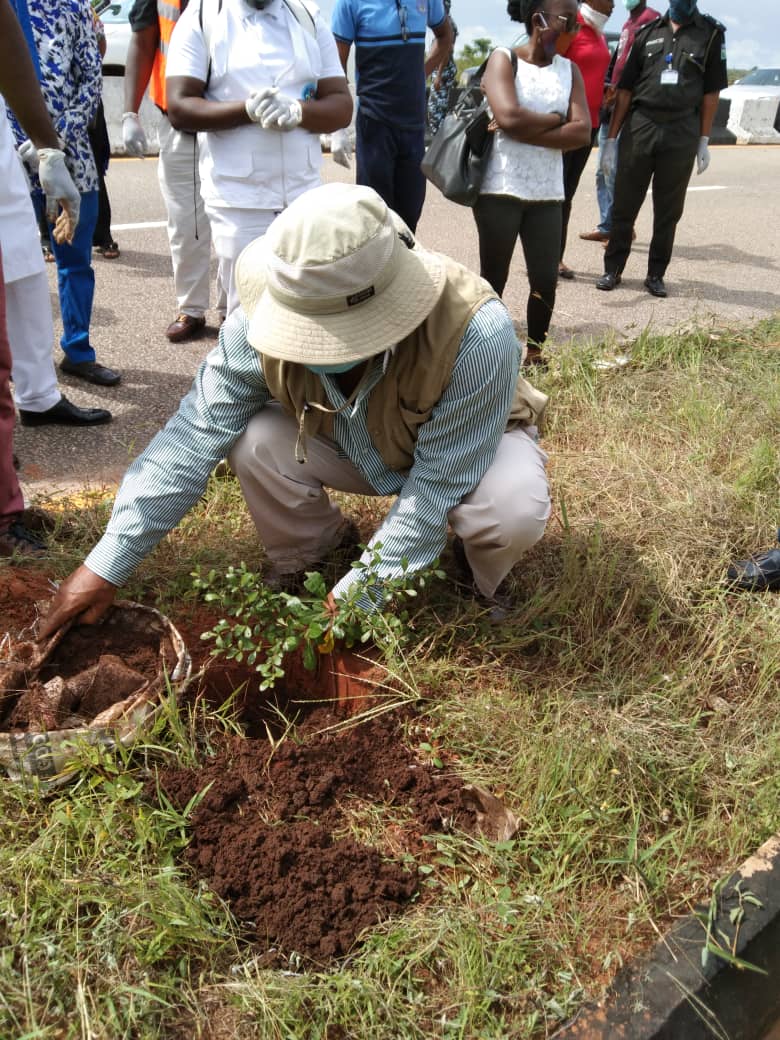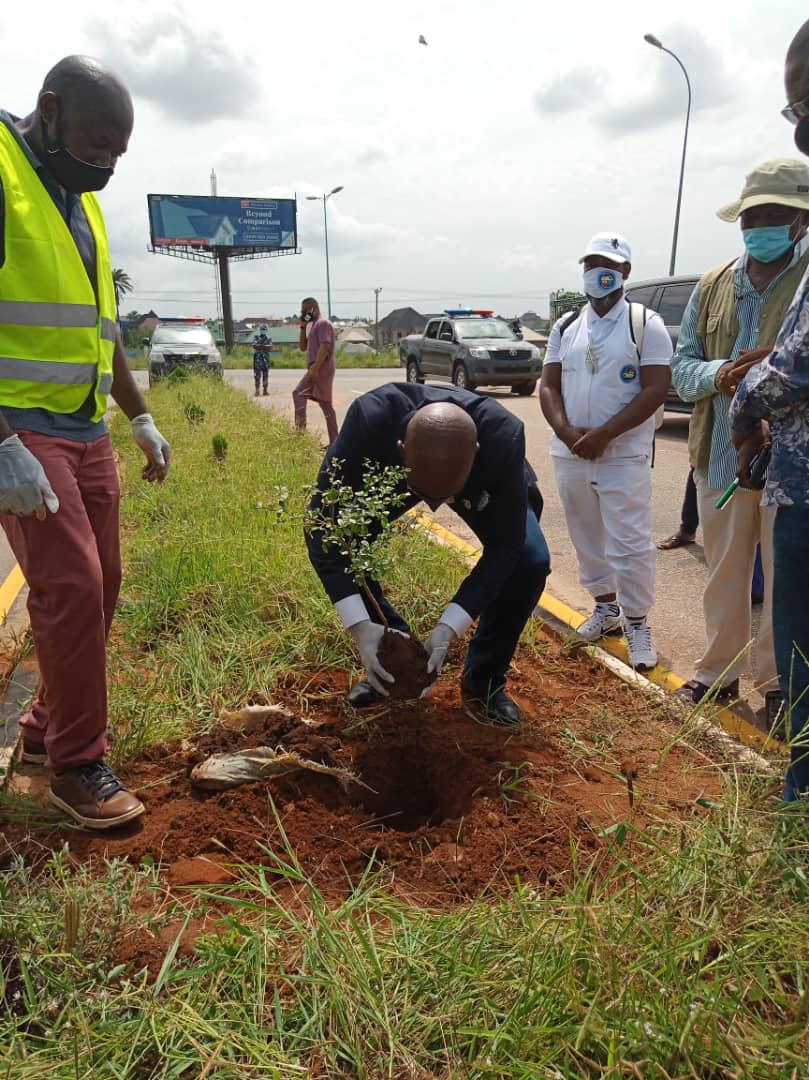
For many who know me personally or have followed my life’s adventures, it will come as no surprise to you that the event of a fallen tree would make for a headline worthy activity to me. This is why today’s article resounds deeply with me. The idea for today’s content came following a massive storm some nights ago; the storm as usual was marked by very heavy downpour of rain, which is in part a wakeup call from climate change. It wasn’t a surprise that the rain fell as I had earlier expected it because we had just finished with the planting season. The farms could do with the rain. However, what we didn’t expect was the severity of the storm.
In the morning after a night of heavy rain and a violent outbreak of lightning and thunder loud enough to raise the dead, I got up to go for my usual early morning walk. As I walked out of my room, there was my house keeper who also doubles up as the gardener of over 30 years almost in tears. He looked at me and said, ‘Oga, your trees don fall.’ This was very sad news indeed but from last night’s storm, I had resigned myself to the fate of such an occurrence. So I consoled him and asked to be led to the scene of nature’s crime. The scene of the crime was in my compound in Akwukwu, my hometown in Delta State where I am currently hiding from COVID-19. There, I have trees that are over a hundred years old, some of which were now lying on the ground.
After assessing the damage, we carted away the fallen trees; trimmed some of the very old ones and planted some new ones to replace those that fell. The latter was of great importance to me as I believe that we should never leave a vacuum in nature. As earlier stated, some of the trees that fell were over a hundred years old and therefore, older than me; as such I told my house keeper that the trees only expired. Although they would be sorely missed, it was their time to go. It was a good thing I owned millions of trees. You see, I may not have planted up to a million myself but I have sponsored the planting of trees across Africa, I have managed to stop quite a lot of them from being cut down, I have planted in the Sahara and in Makoda which was a very arid land in Dambata area of Kano state but now totally reclaimed. I have also planted all over the Northern part of Nigeria with school children through different school projects my NGO, FADE Africa initiated; I have planted all over Abuja and even in the Presidential villa. I have also sown seeds across Lagos state, Ogun state and now Delta state.
Some days ago, as part of the celebrations to mark World Environment Day on the 5th of June, I represented my organization at the tree planting occasion organized by the Ministry of Environment, Delta State in the State’s International airport. All present were sure to recognize social distancing even as we sought to appreciate nature by planting trees.
Trees are vital. As the biggest plants on the planet, they give us oxygen, store carbon, stabilise the soil and give life to the world’s wildlife. They also provide us with the materials for tools and shelter. Not only are trees essential for life, but as the longest living species on earth, they give us a link between the past, present and future.
I have always campaigned for the need to restore nature’s greenery to its past glory. My campaigns haven’t always yielded much fruit but the times that it had, I feel nature’s proud pat on my back. Apart from the examples given above, I recall fondly that ten years ago, the then Governor Raji Fashola (SAN) of Lagos State listened to my clarion call and promoted the Desert Warrior Reality Show Programme to address the desertification of our northern states. He also made me an Ambassador for his Greening Programme in Lagos State which resulted in the massive planting of trees in many parts of Lagos. I also recall how my organization recently joined hands with concerned members of the community at the University of Ibadan to stop the felling of old trees in the school’s premises.
My love for planting trees comes not only from my understanding of its importance but also from my belief that trees are a lasting legacy to leave behind for the future generation. I had benefited greatly from trees planted by my ancestors be it the fruits they provide, the shade/shelter they give, the seeds for reproduction and more.

Nature is everything in the world that isn’t man-made and it is time, we pay special attention to it. Human beings tend to be anthropocentric, so we often view nature as a human construct made to serve us, not the other way around. I say human-construct to highlight the fact that we don’t see nature as an objective independent entity but as a result of human existence. This isn’t the case. It is high time human beings understand that we are not greater than the system but a part of it and like the other parts, we have a role to play and laws to abide by; nature’s laws.
COVID-19, which was transmitted from animals to humans, is a direct warning that nature can take no more of our insensitive handling. COVID-19 is largely in part because of humanity’s expansion into wild spaces and this expansion leads to the overexploitation of species bringing people into closer contact with wildlife. COVID-19 may be one of the worst, but it is not the first. We’ve had others like Ebola, SARS, the Zika virus and bird flu all spread from animals to people, often due to human encroachment on nature.
Asides zoonotic illnesses, there are other warning signs that the degradation of nature is threatening health, peace and prosperity. As ecosystems and biodiversity fall to cities, agriculture, infrastructure, climate change and pollution; nature’s ability to provide food, oxygen, clean water and climate regulation plummets.
And while greenhouse gas emissions may dip this year because of lockdowns, we should not celebrate. However, it shows that nature can still flourish, if we give it a chance. This is why we say it is time for nature. Around half of global GDP depends on nature. Our oceans and forests sustain billions of people and provide green jobs – 86 million green jobs from forests alone. Yet humans have always put themselves first without regard to nature. The resultant effect of this selfish act has led to great damages – for example; it has been revealed that humanity has altered 75% of the Earth’s ice-free surface. Since 1990, 420 million hectares of forest, equal to three times the size of South Africa, have been lost and nearly one million species face extinction.
Nature is reaching a tipping point and unfortunately, we are coming to realise that the point will only lead to our own extinction as nature will regrow itself after shaking off the virus attacking it; in this case, humans are the virus.